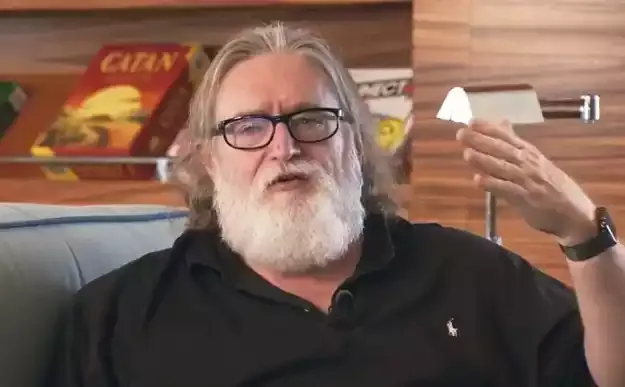Steam boss: NFTs are often dealt with by people of suspicious behavior
In recent months, NFT technologies and cryptocurrencies have become an
increasingly common topic in gaming circles. While most oppose the
implementation of the same in video games, some defend such technology.
However, one of the key people when it comes to video games is certainly
Gabe Newell - co-founder and president of Valve, who has now stated his
position on NFTs and cryptocurrencies in the world of video games.
The
British gaming portal
Rock Paper Shotgun
had the opportunity to talk to Newell, and they also touched on topics related
to NFT and cryptocurrencies, given that Steam has completely banned games
related to blockchain technology. Gabe claims that the problem is not
in the technology itself, but in the actors who use that technology. He
drew a parallel with chemists who discovered trinitrocellulose (smokeless
gunpowder) and imagined what good things they could do with it, but people
suddenly saw that they could shoot others.
Although he does not
claim that NFTs "shoot" others, Newell emphasizes that the problem is in the
way blockchain technology is used and therefore thinks that it does not have a
place in games at the moment. When it comes to cryptocurrencies, Gabe recalls
that Steam used to accept cryptocurrency payments, only to later turn out to
be angry with consumers. There were more problems, from suspicious and even
illegal resources and sources to the fact that the value of cryptocurrencies
varies at all times, so it was frustrating for customers.
"You want
some real number from all this, some percentage, and not half of such
transactions turn out to be fake. It’s similar to the current actors in the
NFT world, these aren’t the people you want to do business with. It doesn't
say anything about the core of the technology, but it is a reflection of
people who currently see something like this as an opportunity
to rip customers off or
participate in money laundering and similar things. " - concludes
Newell.






![No Applicable Update Data Was Found PS3 [SOLVED]](https://blogger.googleusercontent.com/img/a/AVvXsEjAzj9SB3vST0IHYlul0gn55WTbuwcUIkjmU91tP7_NOecY6C4s8_PRZxVKDBXzBuix-G0R24UZox1YFc27FeCefGHxbb_sE2q00PnF-O01RKcyA8JyB_Ug7lctPHvmps5nPKSGbg6YyzOUeM3YariQCoV81cjRxJqe6l4AfV15jjVOzd0ObDfhkuF2lg=s16000-rw)





